#Curt Kirkwood
Text


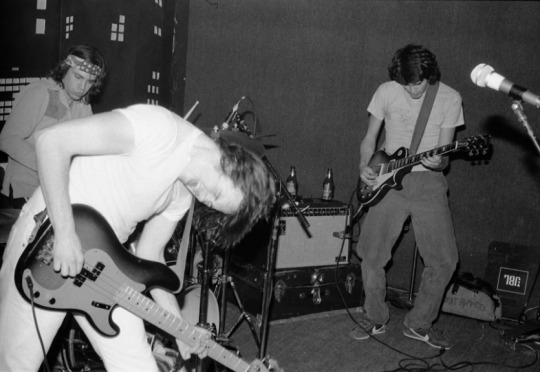
MEAT PUPPETS. AUSTIN, 1985.
#meat puppets#curt kirkwood#cris kirkwood#alternative rock#cowpunk#psychedelia#derrick bostrom#alternative country#hardcore punk#post-punk#rock#punk#country
39 notes
·
View notes
Text
Round one

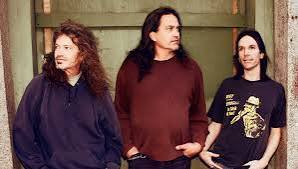
Def Leppard
Formed in: 1977
Genres: hard rock
Lineup: Rick Savage- bass
Phil Collen- guitar
Steve Clark- guitar
Rick Allen- drums
Joe Elliott- vocals
Albums from the 80s:
On Through the Night (1980)
High 'n' Dry (1981)
Pyromania (1983)
Hysteria (1987)
Propaganda: This is the first band I ever saw live. I was seven and up way past my bedtime but their stage show is so energetic and explosive, I never got bored or felt tired. Every member of the band is nice looking but also! There is Lore: So in 1984 their drummer, Rick Allen, was in a car accident that severed his left arm. Instead of replacing him, the band supported him through his rehabilitation and set him up with a custom electronic drum kit he could play with one arm and both feet and he is still playing with the band to this day.
Meat Puppets
Formed in: 1980
Genres: Cowpunk, psychedelic rock, bluegrass, folk, Americana, alt rock
Lineup: Curt Kirkwood – guitar, vocals
Cris Kirkwood – bass, vocals
Derrick Bostrom – drums
Albums from the 80s:
In a Car EP (1981)
Meat Puppets (1982)
Meat Puppets II (1984)
Up on the Sun (1985)
Out My Way EP (1986)
Mirage (1987)
Huevos (1987)
Monsters (1989)
Propaganda:
#round 1#def leppard#meat puppets#rick savage#phil collen#steve clark#rick allen#joe elliott#curt kirkwood#Cris kirkwood#Derrick bostrom#The hottest 80s band tournament#The hottest 80s band tourney
13 notes
·
View notes
Text

«Curt Kirkwood of Meat Puppets and D. Boon of Minutemen at Joy at Sea, 1984.
Photo by Ann Summa»
17 notes
·
View notes
Text

2 notes
·
View notes
Text
curt kirkwood // nirvana’s 1993 mtv unplugged
i don't know how to love // the drums
#my edit#meat puppets#mtv unplugged#nirvava#nirvana mtv unplugged#kurt cobain#curt kirkwood#dave ghrol#kris novoselic#cris kirkwood
6 notes
·
View notes
Text

Meat Puppets
Too High to Die
1994 London
—————————————————
Tracks:
01. Violet Eyes
02. Never to Be Found
03. We Don’t Exist
04. Severed Goddess Hand
05. Flaming Heart
06. Shine
07. Station
08. Roof with a Hole
09. Backwater
10. Things
11. Why?
12. Evil Love
13. Comin’ Down
• [silence]
• Lake of Fire
—————————————————
Derrick Bostrom
Cris Kirkwood
Curt Kirkwood
* Long Live Rock Archive
#MeatPuppets#Meat Puppets#Derrick Bostrom#Cris Kirkwood#Curt Kirkwood#Too High to Die#LP#Alternative#1994
0 notes
Text


☆the meat puppets☆
"The Meat Puppets remain one of the most interesting and inspiring anomalies to emerge from the U.S. hardcore scene. The band's crooked path to alternative rock almost-stardom is well-documented, but their stylistic singularity and influence still remain largely underacknowledged. No other records before or since sound exactly like II or Up on the Sun; hazy and laid back but staggeringly tight and impeccably arranged. Guitarist Curt Kirkwood's intricate, handpicked style can be heard today in the multilayered playing of Oxford Collapse's Mike Pace, among many others." - Pitchfork, 2007
1 note
·
View note
Text
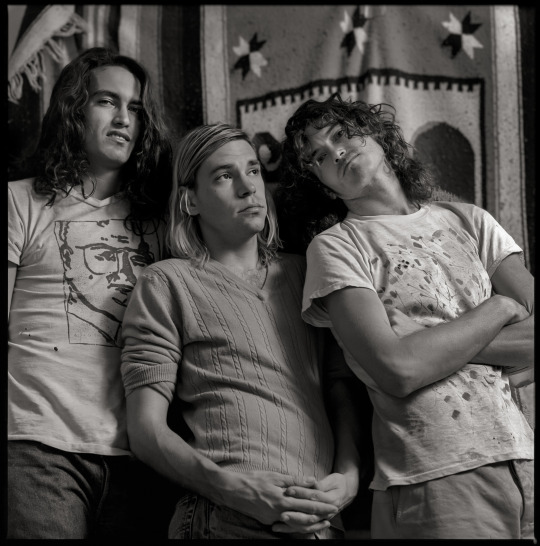


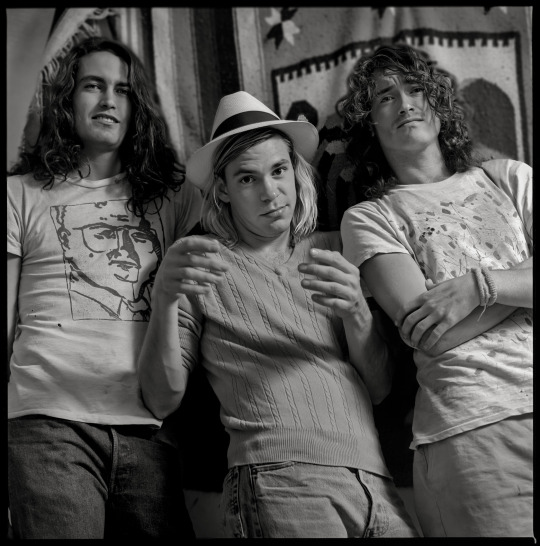
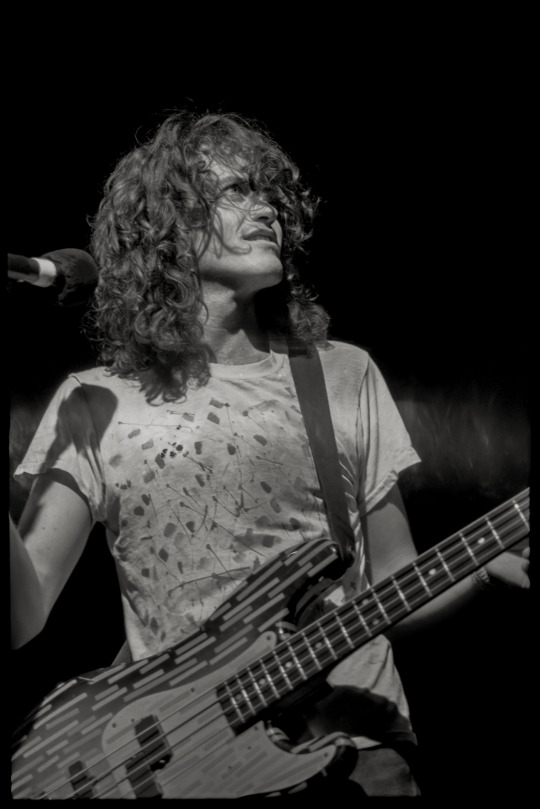
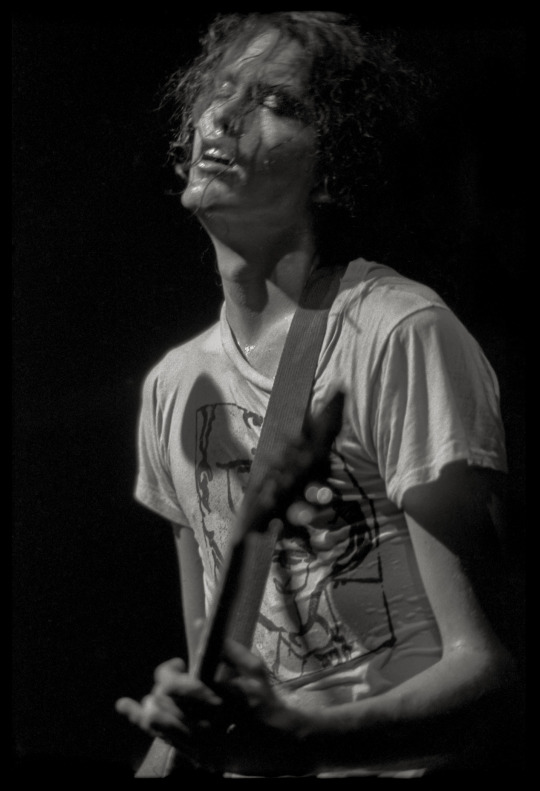

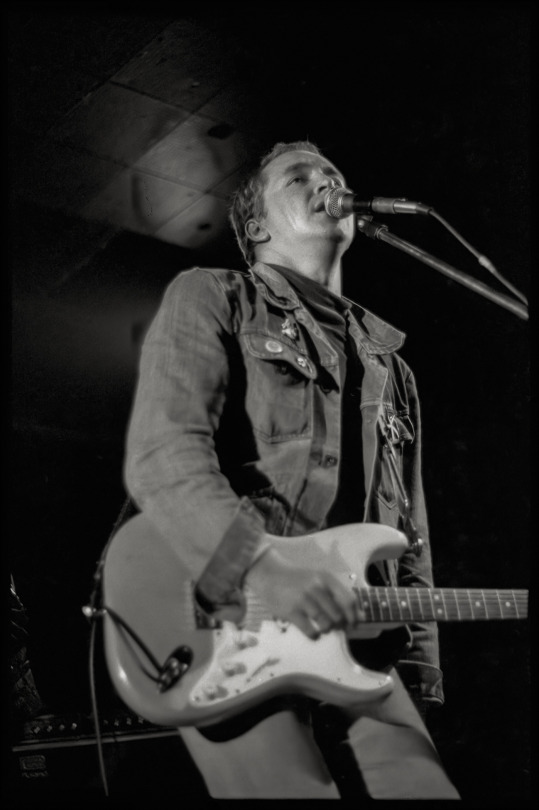
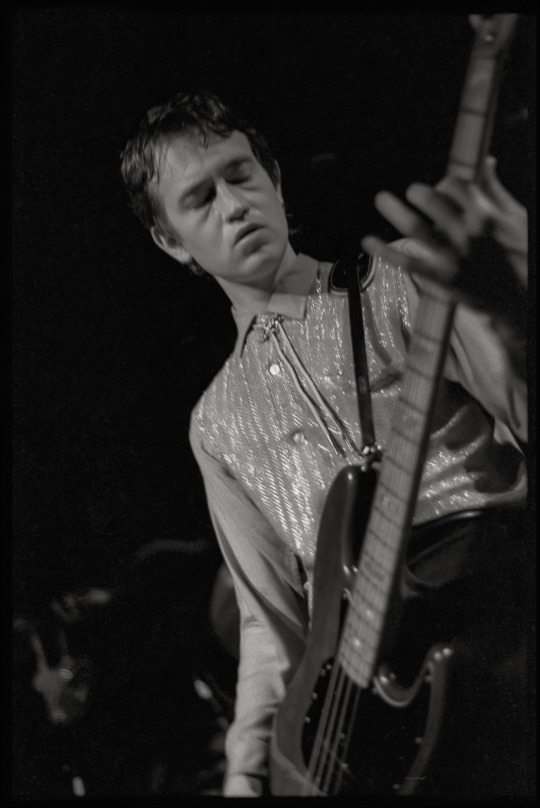

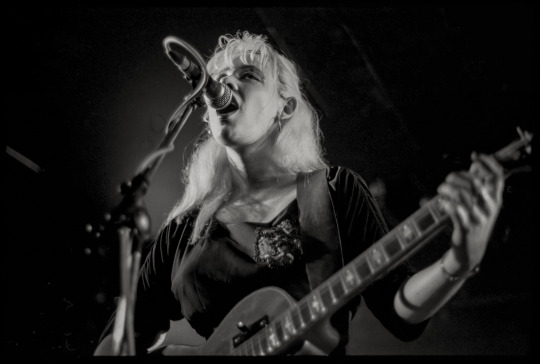
BANDS: MEAT PUPPETS and the GO-BETWEENS, 1987
The Go-Betweens' "Cattle and Cane" might be one of the greatest singles of the '80s - one of those songs I remember hearing early in the decade that made me optimistic for what was to come. I photographed the band when they came through Toronto in 1987 mostly because my favorite local band, The Lawn, was opening for them at the El Mocambo; their lead singer Gord was a huge fan, and he got me hyped about the show. I don't know if I managed to place these pics, however, so their publication on my old blog might have been their first appearance anywhere, though that was enough to get a couple of them in The Go-Betweens: Right Here, a 2017 documentary about the band.
The band were not prepared for a photo shoot when I showed up at soundcheck, so my single roll of portraits was done with five slightly put-out people. What I remember is that they seemed like adults - moreso than almost any other band I'd photographed up till then - though several of my frames were spoiled when drummer Lindy Morrison couldn't stifle a giggle. I was, as with everything else around this time, working against the limits of my competence with my Mamiya and a flash bounced into an umbrella, so I'm amazed that anything turned out at all worth reprinting over 35 years later. One thing I wish is that I'd asked guitarist and singer Grant McLennan (the man who wrote "Cattle and Cane") to take off his sunglasses. Bassist Robert Vickers would leave the band after this tour. Grant McLennan died in 2006 of a heart attack.
My first regular subject as a photographer was our local hardcore scene - basically the place my editors at the Nerve sent me when I showed up and asked for assignments. But hardcore punk was undergoing a metamorphosis at the time, embodied in two bands I shot early on - the Minutemen and the Meat Puppets. Between their first record in 1982 and their third, Up On The Sun, in 1985, they'd gone from being one of the more abrasive bands in the SST stable of bands to the grooviest - a transformation that contined with the two records they released in 1987, Mirage and Huevos, though I couldn't tell you which one they were promoting when they arrived at RPM, the cavernous warehouse-turned-club on Toronto's waterfront where I photographed them.
My shoot with the Meat Puppets would have been called ambitious by me at the time, mostly because I brought a backdrop. They were a southwestern band from Arizona, so I was inspired to bring a Mexican blanket from my apartment - a souvenir my sister and her husband had been given by her in-laws, which by that point mostly lived on my futon couch; give me a break for at least trying something. It wasn't a very big blanket, though, so I had drummer Derrick Bostrom and the two Kirkwood brothers, Curt and Cris, jam themselves together next to my flash and umbrella. The biggest challenge was managing the band's mugging for the camera - almost inevitably a problem when photographing a band. The Meat Puppets would go through a lot of lineup changes over the years, with two breakups, but they're back together with the original trio along with a keyboardist and Curt's son Elmo on guitar.
#the go betweens#meat puppets#punk rock#hardcore punk#portrait#portrait photography#photography#film photography#musicians#bands#band photography#1987#mamiya c330#early work#some old pictures i took
7 notes
·
View notes
Text
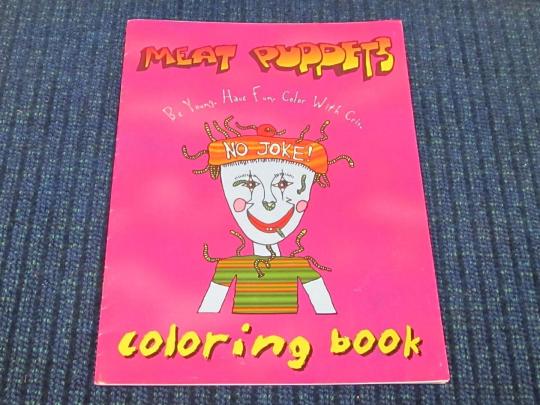

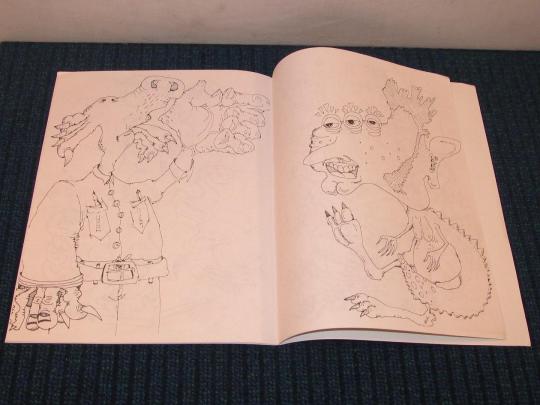

1995 meat puppets coloring book, all drawings by curt kirkwood
1 note
·
View note
Text
An Interview with Derrick Bostrom from the Meat Puppets
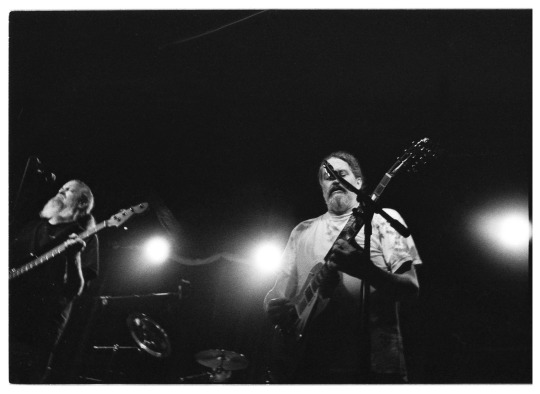
Writing about any music is tough, but writing about the music of the Meat Puppets is really tough. Breaking beyond the noise of the early 80s hardcore scene, this lot scorched ear-drums with a wide-open sound completely their own.
Some called them ‘alternative country’ and some called them ‘cow-punk’, but neither of those weak terms did ‘em justice. This lot nabbed flavours from the full sonic spice-rack to serve up a most flavoursome aural stew.
They’re still at it today, and after a few decades of working ‘a real job’, original drum-smacker Derrick Bostrom is back in the van. Here’s an interview with him about the early days of the band and the realities of being on the road.
Kicking things off at the beginning, what got you into playing the drums? Was there a defining thing that set you off?
I used to play on coffee cans along with my records as a kid. My mom decided to buy me a ‘proper’ children’s set when I was eight, but my kid brother destroyed it after a couple weeks.
When I was 17, I got a cheap department store drum kit so I could play along with a friend of mine who had an electric guitar. I played it for a couple years before I started looking in the newspaper ads for an upgrade.
What sort of music did you listen to growing up? Did playing in bands and being up on stage seem like an attainable thing?
I listened to typical progressive artists when I was a teen. The Dead, Zappa, CSNY, Yes, Todd Rundgren, King Crimson, Eno… and The Beatles, of course. I got heavily into punk in 1977. Once I saw punk rock, I immediately knew I could do it, and started my plan for world domination.

The arrival of punk rock is often talked about as this seismic thing—but as I wasn’t even born then, it’s maybe a bit hard for me to get my head around how radical it was. What was it like for you? Was it a real, noticeable shift?
Punk was seismic enough to make a splash even in a backwater like Phoenix. My friends and I used to get good weed from some cool older guys in town who had turned us on to music like Gong, Eno and King Crimson.
They then got into punk rock, formed bands, got gigs and got local press—I was amazed to read about my friends in the local weekly. Around the same time, I was seeing my first interviews with Johnny Rotten in Creem magazine. I was fascinated. I got caught up in punk quickly after that, though I was alone among my friends, who thought punk was a joke.
How did all this lead into you starting a band?
I tried to talk everyone I knew into starting a band. My friend with the guitar and I had a duo we called The Atomic Bomb Club, but he was hyper-critical of himself and didn’t like performing in front of people. He was also committed to finishing school and getting a ‘real’ job.
Even back then, all I wanted to be was a professional musician, but it wasn’t until I got to know Curt Kirkwood that I found someone interested in the same thing.
How did you lot meet?
I initially met Curt because my friends and I had access to good bud, but he also needed more cool friends. He was a cool guy who lived on the uncool side of town. Eventually, we connected. He was open minded enough to take an interest in my punk rock records, and soon we’d learned a bunch of them. Next, we invited Curt’s younger brother Cris to play with us.
Do you remember your first show?
Our first couple of shows were private parties for friends. We basically ran through songs we’d learned from my punk rock 45 collection. In the summer of 1980, we named ourselves Meat Puppets, started writing songs and did our first club gigs. We were so feral that we blew everyone’s mind.
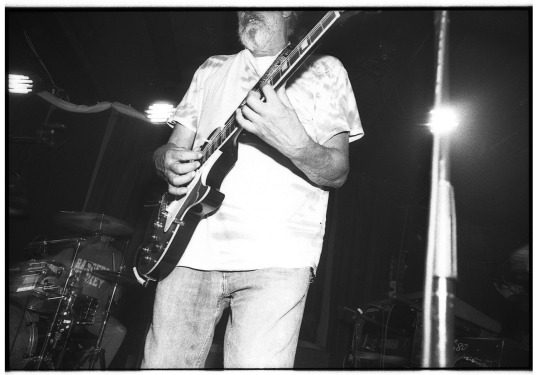
The second album is the one that gets talked about—but the first one is still pretty wild and unique. What went into the making of that? What were you trying to do?
We got a lot of attention playing so fast and so crazy, but it was hard to reproduce that energy and intensity in the studio. The first album is us trying our best, but we were very green so it didn’t come out as good as we’d hoped.
Still, the first album stands as a good document of where we were at back then. Most of the songs are cranky punk anthems with words by me and music by Curt. Curt avoided the stupidity of my lyrics by screaming unintelligibly. After that, he started writing his own lyrics.
You spent a lot of the early 80s touring with Black Flag. What were those shows like?
Our distaste for ‘hardcore’ audiences is what caused us to turn our backs on punk rock. We took too much abuse from Black Flag fans back in those days. We didn’t like the fights and the spitting and throwing things. We didn’t like the jock mentality. We retreated back to our hippy roots pretty quickly, taunting the audience and playing shit they hated until they stopped coming.
What else went on when you were on tour? I know the shows are obviously the ‘juicy bit’, but I’m always interested in the normal stuff and the down-time.
We liked to spend as much time in nature as we could in between shows. We liked to go to the forest whenever we could. But mostly, it was long drives between towns, begging for floors to sleep on and looking for cheap food.

Do you think some people missed the point with punk music? Were some people just looking for an excuse for violence and dubious behaviour?
Some people thought that violence WAS the point of punk music! We didn’t feel that way, obviously. But people tend to miss the point a lot, no matter what they think.
The music was fairly different, but you lot shared a lot of sensibilities with Minutemen and Hüsker Dü. I’m not sure if competitive is the word here, but was there ever any slight rivalry between the bands? Did what they were doing spur you lot on at all?
We never felt competitive with the Minutemen nor the Huskers (there were times, however, that Cris would become exasperated with my simplistic style and wish he had a drummer like Hurley in the band!) But in general, we didn’t feel like we had much in common musically with our SST label mates. We were just into our own thing too much.
That time in music is often mythologized (maybe I’m doing it right now)—but what are the things that don’t get talked about? What sucked about being in a band in the early 80s?
Doing it as we did, for a living, being in the band left us very broke most of the time. We had to tour constantly in order to make ends meet. This was not only exhausting, but disruptive to our lives. The upside is that it made us a great band.
How involved were you with the song-writing? How did a song tend to come together in the mid-80s?
I wrote most of the lyrics for first songs, the ones on the first album. But once I got the pump primed, Curt took over from there. After that, I contributed song titles occasionally. Since we rehearsed all the time, we usually develop a song over time during rehearsal. As often as not, Curt wouldn’t finalise lyrics until he got a song into the studio.
What about the recording aspect of it? Were there endless multiple takes and mammoth studio sessions, or was it all pretty laid-back?
Each studio session was different. Quite often, our reach often exceeded our grasp in the studio, so sessions could be fraught with frustration. I can confirm that it was never laid back. It would take us a good while to get comfortable in the studio.

Am I right in saying you all lived in a house together? Were you working at the time or was being in the band a full time thing?
We lived together for a while in the early days. Or rather, the brothers lived together and I crashed at their house most of the time. When Curt and his girlfriend had twins in 1983, I moved out. But we always lived nearby one another and were able to rehearse as often as we wanted, usually every day.
Up On the Sun was another fairly distinct record—but it’s maybe a bit more… erm… ‘stylistically cohesive’ than Meat Puppets II. Was there any specific themes or influences going into that album?
I suspect that Curt become a father had the most thematic impact on the album. But also, we’d been together for five years by this point, were always restless, and were itching to spread our wings.
Did you anticipate it becoming the classic it is known as now, or was it just another batch of songs?
I always felt that ALL of our output was destined to be classic.
Haha - fair enough. You lot played at the Desolation Centre Gila Monster Jamboree in the Mojave Desert which is often seen as the precursor to a lot of the big festivals that exist now. What do you remember about that?
It was a long drive out to the middle of nowhere. The PA was terrible. Our performance was just fair. There was a lot of psychedelics around. Kind of a pain in the ass gig.
I like your honesty there. I’m not sure if Mirage is a particularly popular Meat Puppets album – but it’s one of my favourites. For a fairly clean-sounding album, there’s a lot of natural-world type stuff on that album. Did you think much about the lyrics, or were they just things that Curt came up with?
Curt completed the lyrics in the studio. We had a lot of the music rehearsed, but he had a notebook full of stuff that he didn’t finalize until he had to record his vocals. This became a pretty common practice for him after that.
A lot of people dream of being in bands—but not many people actually cut it. How much work is actually involved?
For us, it was a full time job. Constant rehearsal, constant touring, lots of recording, lots of talking to people on the phone, lots of self-promotion. If you put that much into it, you’re bound to get something back, no matter what your endeavor. You don’t even need to be actually good if you put that much work into it, though it helps.

By the early 90s you were signed to a major label and featured regularly on MTV. On the face of it, this is ‘a positive development’—but how was it for you? How did the new business aspect, and the tour bus, change things?
We did a lot of good work in those five years, but it took a toll on our relationships and on our art. Ultimately, I think it pulled us off our game. But we’d been on indie labels for ten years at that point, and were sick of being broke and were near to burnout. Being on a major gave us a nice shot in the arm. Plus, the exposure we got in those years allowed us to keep working right up to this day, during a time where “rock bands” aren’t exactly in high demand.
You left the band in the mid-90s. What else have you been up to since then? Was it weird to work a ‘normal’ job after being a band for years?
Getting married and getting a “real job” saved my sorry ass. It allowed me to grow and mature and explore my potential.
Now that I’m back with the band, my experience in the “real world” is really paying off. I’m a better Bostrom in every way than I used to be back in the day.
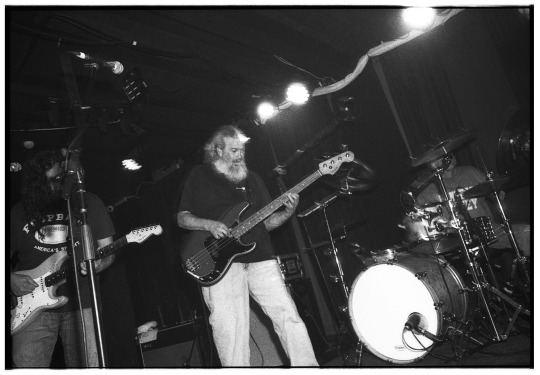
You’ve been back with the band since last year. How do you think playing in bands has changed since back in the early 80s?
In too many ways, things haven’t changed at all. The band itself and the music is a lot better. But the Meat Puppets has never been a “popular” band, and just like in the 80s, we can sell out any three-hundred-person-capacity club you can name. But beyond that is anybody’s guess.
Have crowds changed much since back then? Do you think people react to music the same as they used to in the 80s?
Like us, the crowds have aged. But we still pull in some younger folks. By younger, I mean people in their 30s and 40s of course.
You lot seem to attract a pretty obsessive fan-base. People have written books about the lyrics, and I’m sat here now typing up questions about stuff from over 30 years ago. What do you think it is about those songs that register with people?
For one thing, our songs are fantastic. Second, Curt makes sure his songs are open-ended enough to be open to a wide interpretation.
What do you think kept Curt going with the band over the years? He’s been with the Meat Puppets the whole time.
Curt just likes to play. He’s lucky enough to have had enough success to allow him to keep it going at a pace that suits him.

What was it that brought you back into the band? Was it something you were wanting to do for a while?
I reconnected with the band when we were inducted into the Arizona Music and Entertainment Hal of Fame. I hadn’t considered rejoining the band at all before that. But so many people were excited for the induction that I swallowed my pride and reached out to Curt. Once thing led to another after that.
How do you apply your ‘real world’ experience into the band? Rock bands don’t usually hint at a logistical mind, but I imagine it’s pretty important.
Mostly, I have experience working with lots of different kinds of people now. I came straight out of my teens into a rock band, and never really learned that skill. I’ve also learned how to keep organized and stay focused on a a goal. I’ve also learned how to HAVE goals!
Makes sense. I think this is my last question; thinking back to the lyrics and the art that goes with the albums and everything, there’s some funny stuff in there. Is that sense of humour important?
It has always been impossible for the meat puppets to look at the world as anything but completely absurd!
Interview originally published in Roman Candle issue 1.
0 notes
Text
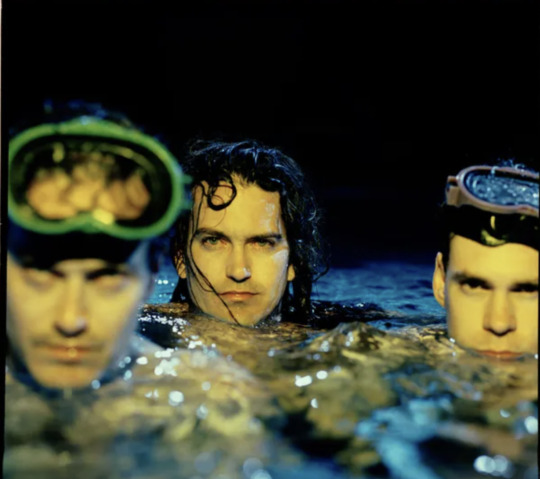
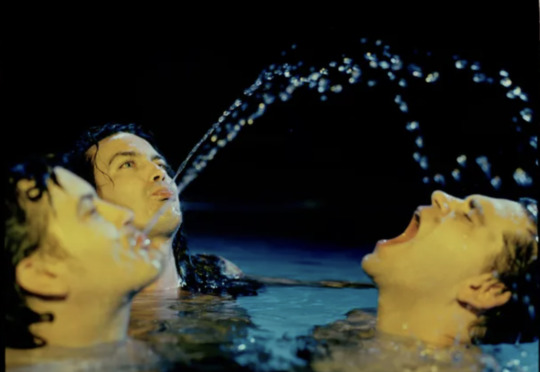


Meat Puppets, 1993. By Joseph Cultice
#meat puppets#curt kirkwood#cris kirkwood#grunge#punk#cowpunk#uploads#the meat puppets tag SUCKS its up to me#derrick bostrom#alt rock#alt country#1990#1993#90s music#joseph cultice
69 notes
·
View notes
Text

MEAT PUPPETS
#meat puppets#cris kirkwood#curt kirkwood#alternative rock#cowpunk#progressive punk#alternative country#rock#punk#country
91 notes
·
View notes
Photo


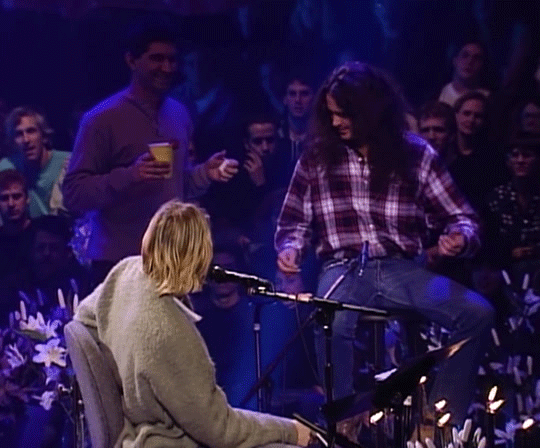
58 notes
·
View notes
Video
youtube
Meat Puppets - Up on the Sun
#meat puppets#up on the sun#up on the sun album#curt kirkwood#cris kirkwood#derrick bostrom#alternative rock#post-punk#psychedelic rock#music#music is love#music is life#music is religion#raining music#80s#80s music
1 note
·
View note
Photo
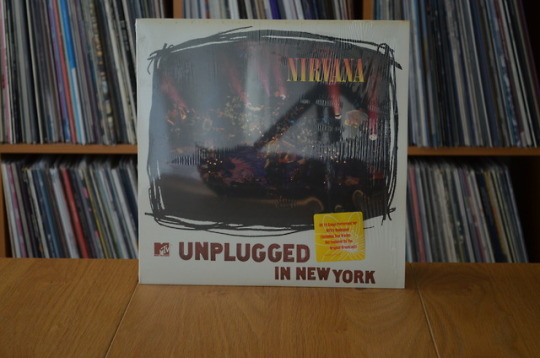
Nirvana: MTV Unplugged In New York
DGC DGC-24727
Released: November 1st, 1994
#meine photos#nirvana#kurt cobain#dave grohl#pat smear#krist novoselic#lori goldston#cris kirkwood#curt kirkwood#vinylcommunity#vinylcollection#vinyloftheday#1994 music
10 notes
·
View notes
Photo
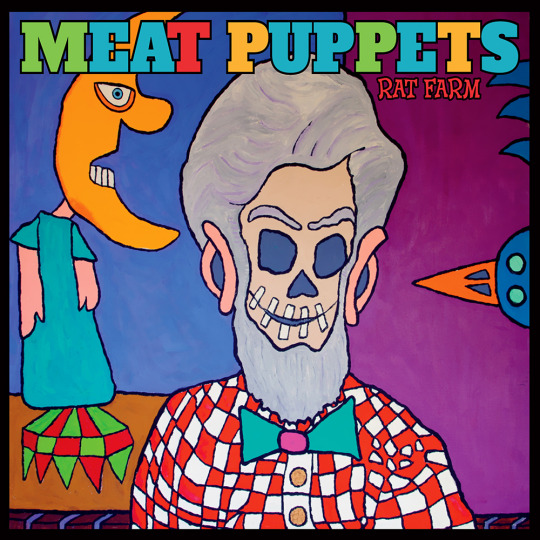
Meat Puppets
Rat Farm
2013 Megaforce
—————————————————
Tracks:
01. Rat Farm
02. One More Drop
03. Down
04. Leave Your Head Alone
05. Again
06. You Don’t Know
07. Waiting
08. Time and Money
09. Sometimes Blue
10. Original One
11. River Rose
12. Sweet
—————————————————
Cris Kirkwood
Curt Kirkwood
Shandon Sahm
* Long Live Rock Archive
0 notes